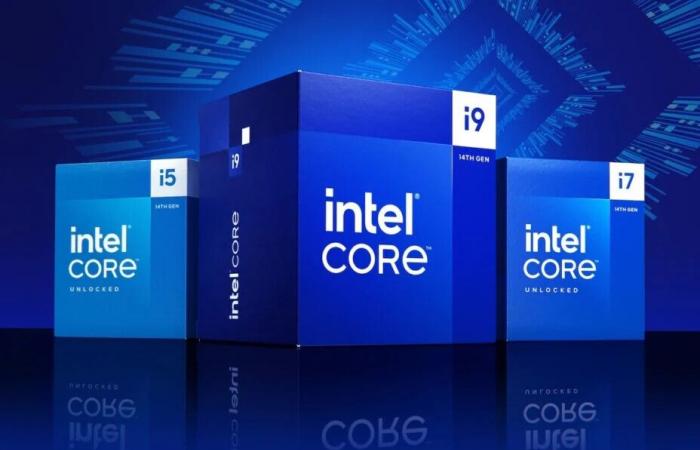After months of difficulty, owners of PCs equipped with the latest generation Intel processors can finally find stability.
For months, users of Intel’s 13th and 14th generation processors have been playing Russian roulette. Unexplained crashes, sluggish performance, capricious PC… Intel’s high-end was suffering from major bugs, while Intel was sinking into crisis.
To go further
Unstable Intel processors: everything you need to know about it in 4 questions
Which processors are we talking about? The 13900K and 14900K of the Raptor Lake and Raptor Lake Refresh generations.
Inte confirmed, a little later, that the problem could affect not only i9 processors (13900K, 14900K), but also all chips with a base power of 65W, i.e. almost all 13th processors (Raptor Lake) and 14th (Raptor Lake Refresh) generation.
Expected updates
After several failed attempts, Intel finally seems to have found the magic formula. The 0x12B microcode update would be the key to putting an end to this technological soap opera.
This update addresses four problematic scenarios:
- Motherboard power settings too high
- An algorithm that allows i9 processors to operate in higher performance states at elevated temperatures
- Too frequent high voltage requests from the microcode
- An increase in baseline voltages, particularly at rest and at light loads
This was all due to something Intel calls “Vmin offset instability”. In human language, this is a complex problem in which processors and motherboards required voltages that were too high, eventually leading to premature aging and damage to the processors.
And now what do we do?
You need to download and install new versions of motherboard BIOS, from Asus, MSI, Gigabyte, ASRock and so on.
It is important for owners of affected processors to know that while the update can prevent future damage, it cannot repair already damaged processors. In recognition of this issue, Intel has extended the warranty on all affected models from three to five years.
If you notice persistent instability, it is recommended that you contact Intel Support immediately. According to the company, laptop processors and future desktop chips are not affected by this issue, which should reassure potential buyers, especially as the release of the next generation of Intel processors approaches.
For future buyers or laptop owners, don’t panic: according to Intel, you are out of danger. Laptop processors and future desktop chips would not be affected by this problem.
This isn’t the first time Intel has faced challenges with its high-end processors. Previous issues, such as the Specter and Meltdown vulnerabilities, have also required microcode updates. However, Intel’s quick response to this issue and extended warranty shows that the company has learned from its previous experiences and is proactively addressing customer concerns. Note that Intel had no choice, the American company has been sinking into crisis for several weeks.
This crisis comes in a very troubled context for Intel, which announced at the beginning of August a wave of layoffs of more than 15,000 employees by the end of the year.






